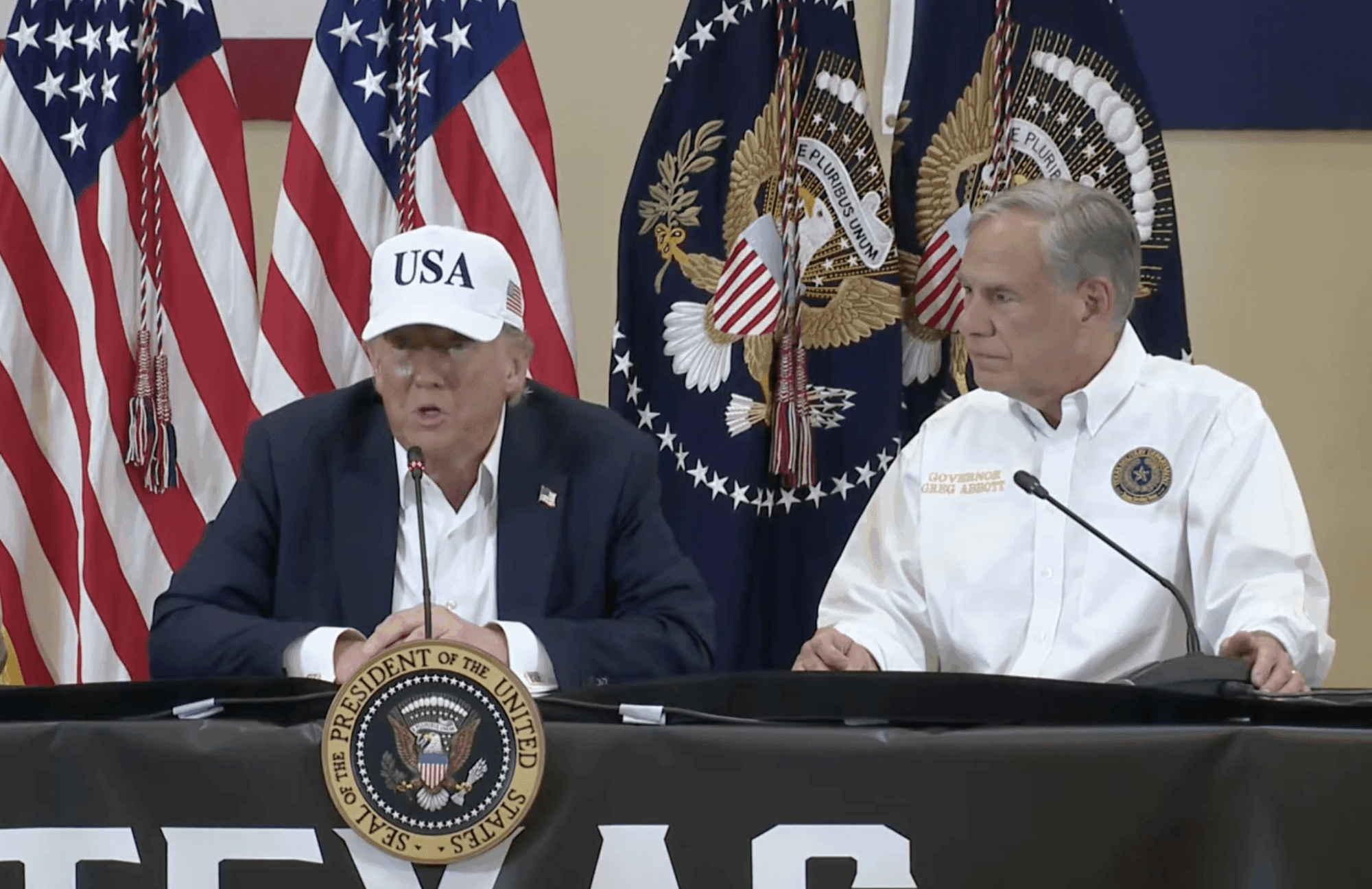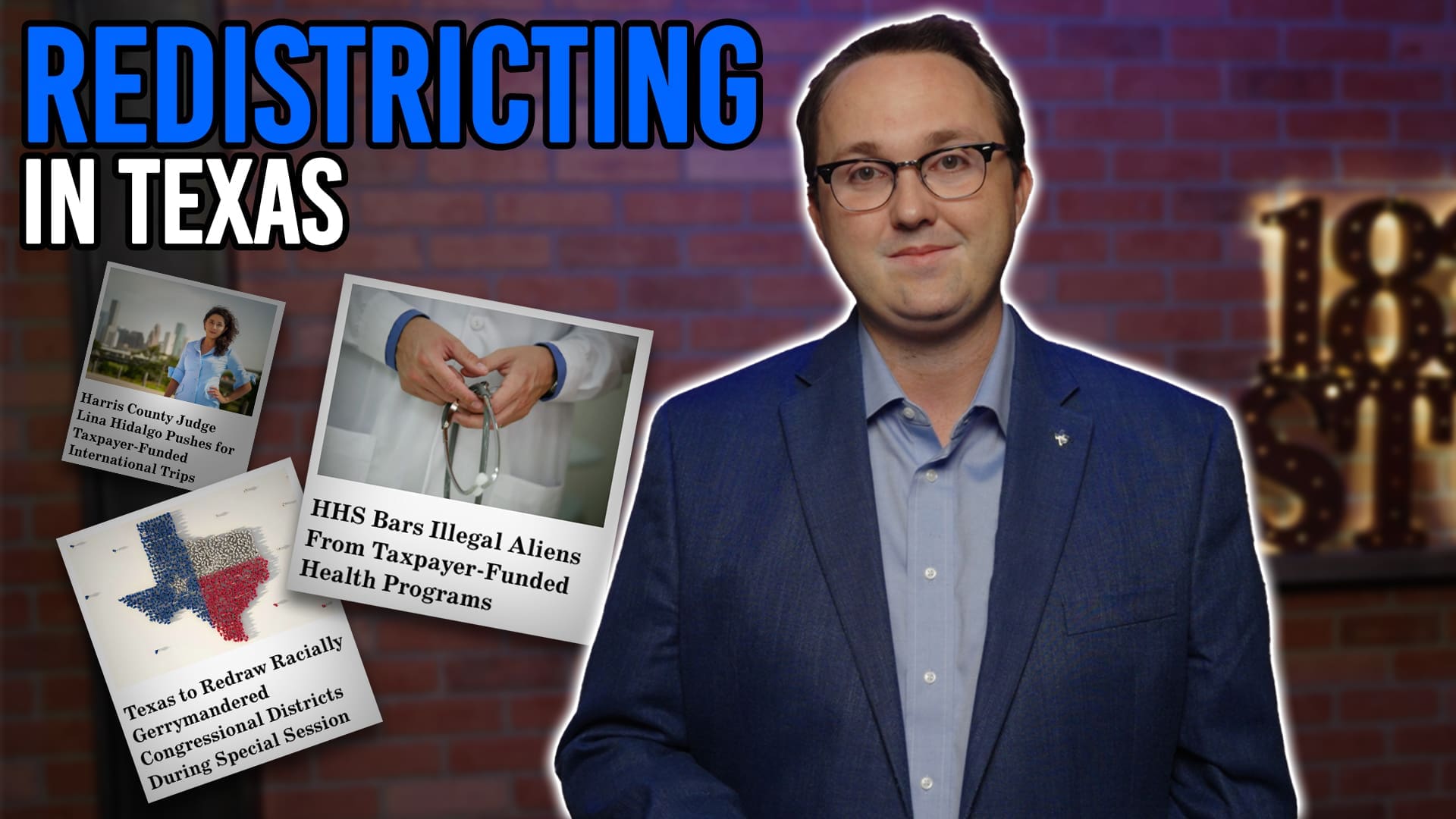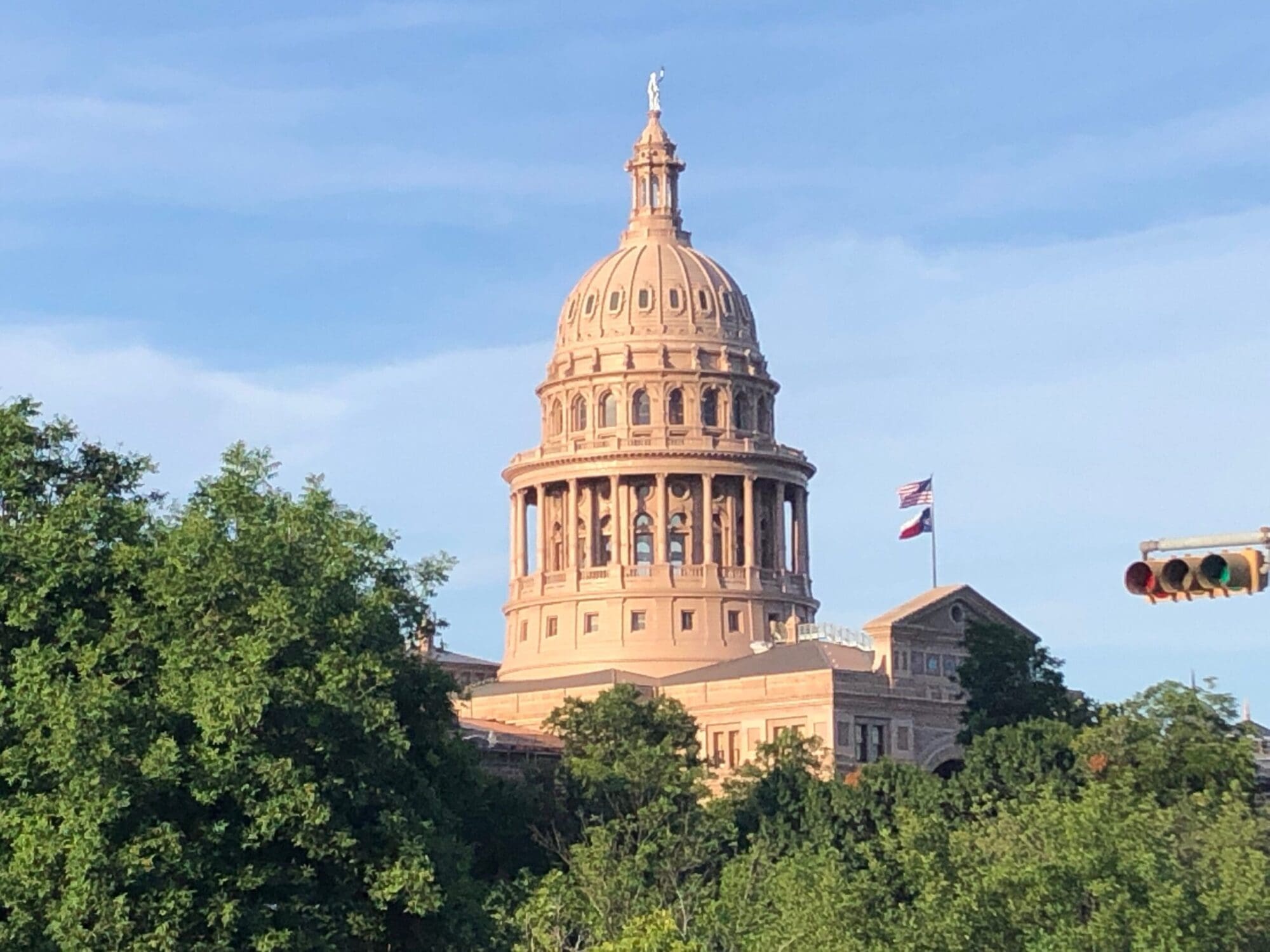After caving in to the demands of a small group of protestors, cancelling an event, and ordering police to escort a conservative lawmaker off of their campus, Texas Southern University issued a press release to try to explain what happened. But the record tells a different story.
“Texas Southern University welcomes free speech and all viewpoints on campus as part of our collegiate experience. Today’s event, which was scheduled at Thurgood Marshall School of Law, ended early because it was not a registered university student organization event.
Our campus is open and welcoming to all state and elected officials. TSU President Dr. Austin Lane was meeting with a state senator when he received word of the event at the Thurgood Marshall School of Law. Dr. Lane went to the event to see State Rep. Briscoe Cain, students and faculty, and then learned that it was an unauthorized Texas Southern University student organization event. Our vice president of Student Affairs has since met with the student organizer and informed him of university procedures. Several events have been cancelled in the past on campus because procedures were not followed. We welcome the return of any guest speaker for deliberative dialogue on our campus in accordance with university procedures.”
On its face, the statement seems genuine and straightforward, but it deserves more scrutiny.
First, TSU claims that the event, a speech with State Rep. Briscoe Cain (R-Deer Park), was “not a registered university student organization event,” but according to event organizer, Daniel Caldwell, every procedure required in the TSU student handbook was followed in order to host the event.
“I know, for a certainty, that I followed every step required by our handbook,” he told local news station KHOU.
And in emails obtained by Texas Scorecard, Virgie Mouton, the Assistant Dean of Student Affairs, was not only aware it was taking place, but requested an opportunity to meet with Cain before the event.
“I would love to meet him on Monday,” writes Mouton in an email to Caldwell. “Can you make that happen?”
The university’s actions in preparation for the speech also show that administrators were keenly aware that it would take place. Not only did the college coordinate additional police officers for security, both inside and outside of the venue, they also provided a room, specifically requesting that Cain speak in front of the “courtroom” for aesthetic purposes.
The event’s fliers were created by the school, as per policy, and sent to Caldwell. “[The flier] was sent to me on Friday, September 29… I personally dropped off a copy at each of the president’s offices, the student government association offices, and the Dean’s office at the school of Public Administration,” Caldwell told Texas Scorecard.
If that’s not enough, as Texas Scorecard reported yesterday, members of the administration were in attendance and helped kick off the event. As the protestors came in, Assistant Dean for Institutional Advancement, Susan Bynam, took to the microphone to encourage peaceful protests and discourage any disruption of the event.
TSU’s claim that the event was in violation of campus policies also does nothing to explain why Democrat State Sen. Borris Miles (Houston) was the one to interrupt Cain and have him escorted out, rather than school officials.
At the time, Miles stated that he was in his personal office, received a call about the event, and got there as fast as he could, but TSU alleges that President Dr. Austin Lane was already meeting with the senator. So, why Miles was the one seemingly taking charge has yet to be explained.
Texas Scorecard has filed open records request with both Miles and Lane requesting the official schedules and phone records of both individuals.
Sadly, what took place with Cain yesterday is nothing new for TSU. While the campus claims to be “open and welcoming to all state and elected officials,” recent actions show otherwise.
As readers may recall, at TSU’s May commencement ceremony, Texas’ senior senator, U.S. Sen. John Cornyn was slated to give the commencement speech. After threats of protest and vocal opposition, the school backed down and cancelled the speech.
At the time the school said, “We asked Cornyn to instead visit with our students again at a future date to keep the focus on graduates and their families.”
That date has yet to come.
In response to TSU’s explanation, Cain issued a statement saying he will be asking for a formal study of “anti-speech” actions by public universities:
“The law school signed off on the event, even producing a flyer and moving the event to the room of their choice. Now they come out and attempt to say that this whole thing was simply not scheduled properly. In the coming weeks, I’ll be asking Speaker Straus and Lt. Gov Dan Patrick to consider interim studies on the anti-free speech actions of TSU and any other public universities. The explanation given by the university is blatantly inconsistent with the administration’s approval of the event for months. Black Lives Matter was not protesting the paperwork not being filed properly, they wanted to silence speech they disagreed with, and the University allowed it. It’s disgraceful. The cover up is worse than the crime and it’s time TSU officials come clean.”
To be clear, the problem isn’t that students on a college campus are protesting people they disagree with. The problem is when a public university silences, prohibits, or discourages the speech of some, just to please those who are most vocal.
Universities are supposed to provide opportunities to challenge students’ thought process, introduce new ideas, and make them question their positions, even if just to ensure they are based on solid ground. Taxpayer-funded TSU’s seeming tendency to cancel speeches by duly-elected lawmakers at the behest of a few protestors does a disservice to their entire student body, and is a slap in the face to those who seek to intellectually confront opposing ideas.




